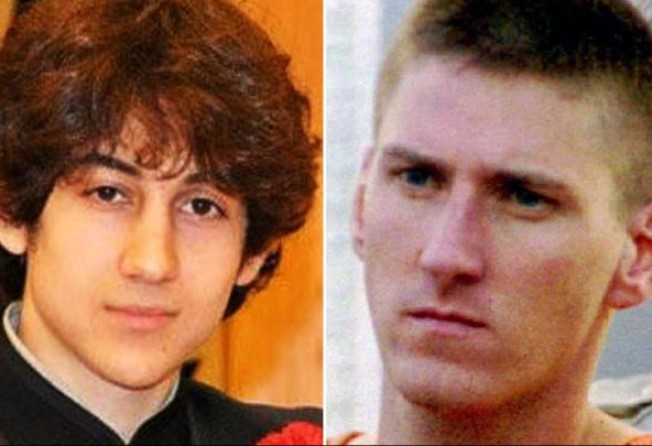After Boston, lessons from a legacy of terror
Legal cases against the perpetrators of past outrages in the US can give prosecutors a pointer as they consider charges against Boston suspect

As prosecutors consider charges following the Boston Marathon bombings, the same laws used successfully in deadly terrorist acts such as the Oklahoma City outrage and the first World Trade Centre attack may be at the top of their list.
Terrorism cases brought over the past 20 years show there are several federal statutes that could be applied, including counts of conspiracy to use or actual use of a weapon of mass destruction, both punishable by death.
Dzhokhar Tsarnaev, the 19-year-old suspect in the marathon attack, is being held in a Boston hospital where he is in serious condition, unable to speak due to injuries to his neck and tongue sustained while on the run from police, officials said.
The US Federal Bureau of Investigation still was unable to interview him, Boston Police Commissioner Ed Davis told CBS television, and authorities may never be able to speak with him, Boston Mayor Thomas Menino said.
In last Monday's bombings, three people were killed and more than 170 injured. The suspect's elder brother, Tamerlan, 26, was later killed in a confrontation with police.
Even in cases matching the brutality of the Boston outrage, there is a mixed record of those prosecuted under federal terror statutes when it comes to obtaining a sentence of life, or death.
But the one consistent thread over the years has been that most cases result in convictions.
Timothy McVeigh, accused in the 1995 Oklahoma City bombing, was found guilty of 11 crimes, including conspiracy and the use of a weapon of mass destruction, for detonating a bomb outside a federal building that killed 168 and injured more than 800.
Ramzi Yousef, who assembled a team of colleagues and the supplies to build a 1,200-pound bomb used in the 1993 World Trade Centre bombing, was convicted of conspiracy and other terrorism charges for the attack which at the time was the worst terrorist incident ever on US soil.
McVeigh was executed, while Yousef was sentenced to life plus 240 years in prison for the bombing, which killed six and injured more than 1,000. His sentence also stemmed from his role in a separate plot to bomb more than a dozen US jetliners over the Pacific during the same day.
Yousef is serving his sentence in the US government's Administrative Maximum facility in Florence, Colorado, the same facility that houses McVeigh's co-conspirator, Terry Nichols, who is also serving a life term.
Faisal Shahzad, accused of a foiled plot to blow up his Nissan Pathfinder in New York's Times Square on May 1, 2010, was charged with conspiracy to detonate an improvised explosive and incendiary device; attempted use of a weapon of mass destruction; using a destructive device in connection with an attempted crime of violence and possession and use of a firearm, as well as attempted act of terrorism transcending national boundaries.
Shahzad, a former financial analyst, would later plead guilty and admit to receiving training and funding from the Pakistan Taliban. He was sentenced to life in prison.
Adis Medunjanin, charged in a conspiracy to detonate bombs in New York City subways, was indicted on a weapon of mass destruction count and other terrorism charges. He was convicted and sentenced to life in prison.
"I think we can expect the prosecution to put together a meticulous case based on the forensic evidence, the videos, eyewitness testimony and any statements that the surviving defendant makes to the authorities," said Kelly Currie, who led the Violent Crimes and Terrorism section in the Brooklyn US attorney's office from 2006 to 2008, where he supervised a number of terrorism prosecutions.
"I would think it's going to be a very strong case, and ultimately all the pieces put together are cumulatively going to show a pretty full mosaic of this defendant's actions leading up to the attack and in its wake." Another factor in such a decision is often whether a defendant decides to plead guilty rather than go to trial.
In the attack that bears the most similarity to the Boston bombing, a backpack with three pipe bombs encircled by nails exploded in Atlanta's Centennial Olympic Park during the Olympics in July, 1996. It left one dead and injured more than 100.
Investigators later tied the attack to Eric Rudolph through an analysis of bomb elements.
Rudolph, who was arrested in 2003, pleaded guilty. He too is serving a life term.
Additional reporting by The New York Times